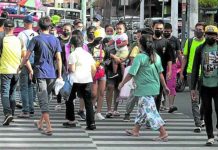[av_one_full first min_height=” vertical_alignment=” space=” custom_margin=” margin=’0px’ padding=’0px’ border=” border_color=” radius=’0px’ background_color=” src=” background_position=’top left’ background_repeat=’no-repeat’ animation=”]
[av_heading heading=’Relatives of drug war victims want justice’ tag=’h3′ style=’blockquote modern-quote’ size=’30’ subheading_active=’subheading_below’ subheading_size=’15’ padding=’10’ color=” custom_font=” av-medium-font-size-title=” av-small-font-size-title=” av-mini-font-size-title=” av-medium-font-size=” av-small-font-size=” av-mini-font-size=” admin_preview_bg=”][/av_heading]
[av_textblock size=” font_color=” color=” av-medium-font-size=” av-small-font-size=” av-mini-font-size=” admin_preview_bg=”]
Friday, November 3, 2017
[/av_textblock]
[av_textblock size=’18’ font_color=” color=” av-medium-font-size=” av-small-font-size=” av-mini-font-size=” admin_preview_bg=”]
MANILA – The families of thousands of victims in the Philippines’ bloody war on drugs mourned on Wednesday at gatherings in churches and cemeteries in this capital to call for justice.
Priests at a special Catholic service on a gloomy All Saints’ Day prayed for and blessed photographs of those killed, and some relatives held a protest outside a police station whose officers have been blamed for deaths.
President Rodrigo Duterte unleashed his signature anti-narcotics campaign immediately after taking office in June last year. Human rights groups believe many of the 3,900 deaths in police operations were summary executions.
Police deny the accusations, saying the drug suspects were armed and had violently resisted arrest.
Thousands of Filipinos flocked to cemeteries on All Saints’ Day, known as “Todos Los Santos,” to pay their respects to the dead by cleaning tombstones, placing flowers and lighting candles.
“One important reason for celebrating ‘Todos Los Santos’ with the families is to remember their loved ones and draw inspiration and courage to seek truth and justice for those killed because of this war on drugs,” Catholic priest Gilbert Billena said during the service.
Nearly 80 percent of the Philippines’ population of 100 million is Catholic, the vast majority of whom still practice with enthusiasm.
Relatives sang hymns and wept, surrounded by placards calling for justice beside photographs of the slain, while a poster nearby read, “Address the roots of drug addiction.”
Normita Lopez, whose second-born Djastin Lopez was gunned down by police in May, mourned over her son’s tomb at Manila’s largest public cemetery.
“Sometimes I talk to him, I tell his picture, ‘Son, please visit me. I want to see you. I want to hug you, because I wasn’t able to,’” Lopez said.
“I really miss him now. I miss him so much. I miss his laugh. I miss his company.”
Lopez said her 25-year-old son had been accidentally caught in a police antidrug sweep near their slum community in Manila and was allegedly framed for the death of a resident they did not know.
There was no immediate response to a Reuters’ text message to a police spokesman to seek comment. Police have earlier said those targeted in antidrug operations were involved in the drug trade or figured on a drugs watch list.
Last month, Duterte ordered police to withdraw from the anti-narcotics campaign and leave all operations to the Philippine Drug Enforcement Agency, following scrutiny of police conduct. (Reuters)
[/av_textblock]
[/av_one_full]



